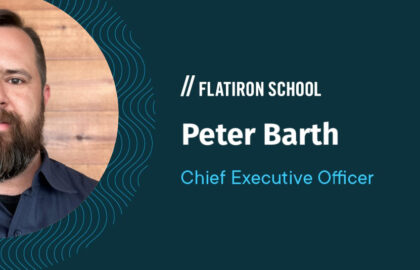The following is a guest post by Desmond Rawls and originally appeared on his blog. Desmond is currently a student at The Flatiron School. You can follow him on Twitter here.
I believe diversification is soulful. My friend Jack Altman recently wrote a post titled: (http://jackealtman.com/your-best-option-is-to-be-the-best “Your best option is to be the best”) I suggest reading it. He makes a case for specialization being the path to success. This is like the fortune cookie joke where you add ‘in bed’ to the end of every fortune. You should read Jack’s article putting ‘in business’ at the end of every sentence.
I guess the emphasis on business is implied. Jack works for a VC firm and admits in his post that he spends a lot of time thinking about startups. I would caution that generalizing business principles is the kind of logic that leads rich people to write off poor people as moral failures. Furthermore, I believe specialization in business and politics is irresponsible.
Being Well-Rounded
“A human being should be able to change a diaper, plan an invasion, butcher a hog, conn a ship, design a building, write a sonnet, balance accounts, build a wall, set a bone, comfort the dying, take orders, give orders, cooperate, act alone, solve equations, analyze a new problem, pitch manure, program a computer, cook a tasty meal, fight efficiently, die gallantly. Specialization is for insects.” -Robert E. Heinlein
This is the philosophy I live by. I’ve never been the best at anything but in 6th grade my teachers gave me the well-rounded student award. Halfway through college I decided being a student, even a well-rounded one, was too narrow for me. So I left and rode my motorcycle from Seattle to Louisiana, where I joined the oilfield. It was easily the best decision I’ve ever made. After the oilfield I worked in a furniture shop and after that I signed up for web development.
I’m not an expert at any of these things. Competent would be a stretch. But because i’ve been a mechanic i can walk into any shop or driveway in the country and strike up a conversation. Because I’ve been a furniture builder i’ll never be bored in any room that has furniture.
One of Us
Jack counters this by saying that specialization provides leverage that ironically opens more doors. That might be true in abstraction but for most people it is only possible after selling your heart and soul to one thing for so long that the idea of ‘being’ something else is a long shot.
I believe that people can adopt new perspectives but the more you invest in one perspective the harder it is to adopt a new one. And society has a say too. Society won’t let you be another kind of person. If you are a high-powered business-person you can move laterally to be a high-powered restauranteur or a high-powered interior decorator or a high-powered politician. But this doesn’t mean you belong in these industries.
Its the perspective from the bottom of the ladder that more often defines an industry’s culture rather than the perspective from the top of the ladder. The kind of hazing you have to endure as a walk-on is part of the group identity. Marines will always be talking about bootcamp and combat no matter how many luncheons they have with the president. It’s similar to how if you travel to the most expensive resorts around the world you’re getting luxury with a twist of culture not the real thing. You can’t move laterally and belong. No fucking way. You’ll never be one of us (insert us of choice).
The real irony is that there are a lot of doors you actually need less power in order to open.
Besides, I don’t think Robert Heinlein meant that you should learn to build and cook after you’re done making a killing at your hedge fund.
So far this discussion amounts to a personal decision. If you want to feel like you own the world go Jack’s way. If you want to feel like you belong in the world go Robert Heinlein’s way.
Empathy in Business and Politics
There is a moral layer, however. If your profession involves socially relevant decision-making you have a responsibility to understand the effects of your decisions. That requires empathy.
Being able to imagine yourself as someone else is the better part of empathy. If tools shape the way we think you will never understand how someone thinks by talking to them at the bar. Definitely not by reading a book or watching a movie. You can only do this by adopting their tools and wearing their clothes which you then realize are your tools and your clothes.
The more entrenched you get in one lifestyle the harder empathy is. You start to see the values of your profession as the only currency in the world. Big decisions inevitably involve converting between the values of disparate worlds. When you think in one set of values, you are leaving someone out, probably a lot of people.
Exit Strategy
If you look at your life and realize that you have been doing one thing your whole life and all your friends do the same thing please proceed to the nearest exit from power. Jobs suitable for you would be writing the newsletter, or organizing the company picnic. Please, whatever you do do not make any decisions involving people outside of your circle.
Many thanks to my man Jack Altman for editing this and for giving me a reason to sound off.




